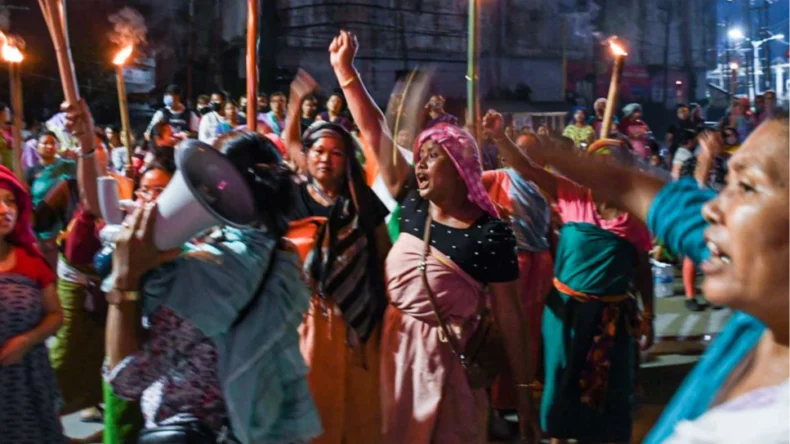Opposition to move a no-confidence motion in Parliament’s monsoon session
In Parliament’s monsoon session, 26 parties in the INDIA alliance (Indian National Developmental Inclusive Alliance) have decided to move a no-confidence motion against the current Government in the Lok Sabha. This is happening for the first time in 20 years, with the last no-confidence motion having been proposed against the NDA government led by Atal Bihari Vajpayee in 2003 after the re-induction of George Fernandes in the Union Cabinet as Defense Minister.
The INDIA alliance is all set to move the no-confidence motion and is currently strategizing for Raj Sabhya to bring BJP to bay.
No-confidence motion post-Manipur gang rape
The move comes after recent outrage over the gang rape and public humiliation of two women in Manipur amid ethnic clashes. News of the rape emerged in July, nearly two months after the incident occurred owing to the internet ban in Manipur. The delayed information, mishandling of the investigation and silence of the government about the matter have been heavily criticised by rights activists and the Opposition.
The Opposition has thus been demanding a statement about ethnic violence in Manipur from PM Narendra Modi and so far 4 days of the Parliament’s monsoon session have been disrupted.
NDA’s Response to no-confidence News
In response to news of the proposed no-confidence motion, Pralhad Joshi (Parliamentary Affairs Minister) said “During our first term also (Opposition) brought a no-confidence motion against us and in 2019 our seats increased from 282 to 303. Let them also bring a no-confidence motion this time, and we will win more than 350 seats.”
The motion he is referencing is the one that was sought to be moved by the Telugu Dasam Party in 2018 against the government but was unsuccessful.
Opposition meets to discuss no-confidence move strategy
The Opposition parties met on Tuesday to discuss strategy amidst the clash between the opposition and the Government regarding the Manipur issue.
Since the commencement of the monsoon session of Parliament on July 20, Congress and other opposition parties have been demanding a comprehensive discussion on the situation in Manipur and a statement from Prime Minister Narendra Modi. In response to their demands, the opposition has engaged in protests and sloganeering, leading to adjournments of both the Lok Sabha and Rajya Sabha sessions.
The opposition parties have additionally appealed to the Rajya Sabha Chairman to lift the suspension of Aam Aadmi Party leader Sanjay Singh, who was suspended on Monday for “repeatedly violating” the Chair’s directives.
The meeting was attended by prominent Congress leaders such as Jairam Ramesh and Pramod Tiwari, along with representatives from other parties, including Raghav Chadha from the Aam Aadmi Party and Derek O’Brien from the Trinamool Congress.
No-confidence motions in India
A no-confidence motion, a vote of no confidence, is a parliamentary procedure used to test the majority support enjoyed by the current government or its leader.
When a no-confidence motion is brought before the legislative body (e.g., Lok Sabha or Rajya Sabha in India), MPs are asked to vote on whether they have confidence in the government or not. If a majority of the members vote against the government or its leader, it indicates that the government has lost the confidence of the house.
If the no-confidence motion is passed, it typically results in the government’s resignation. In some cases, the government may dissolve the parliament and call for fresh elections. Alternatively, if another party or coalition enjoys majority support, they may be invited to form a new government. No-confidence motions have been largely unsuccessful in India, with 2 being passed out of 27 proposed.












